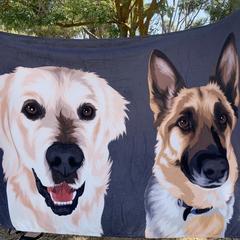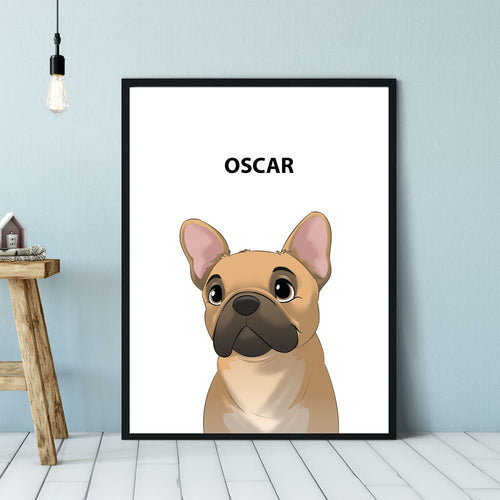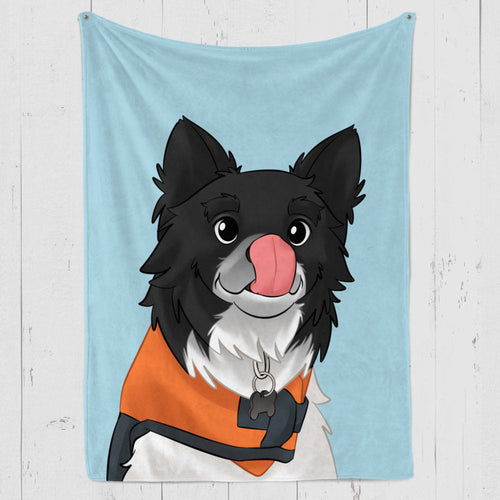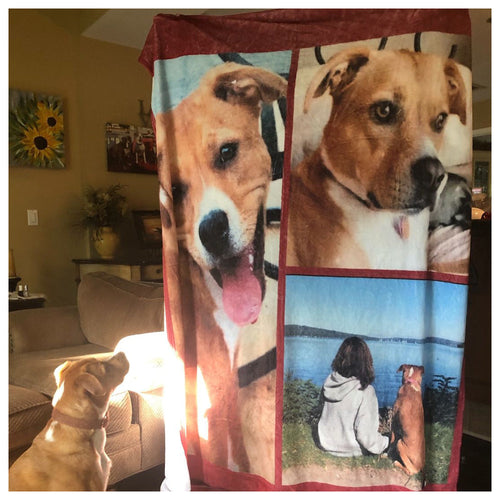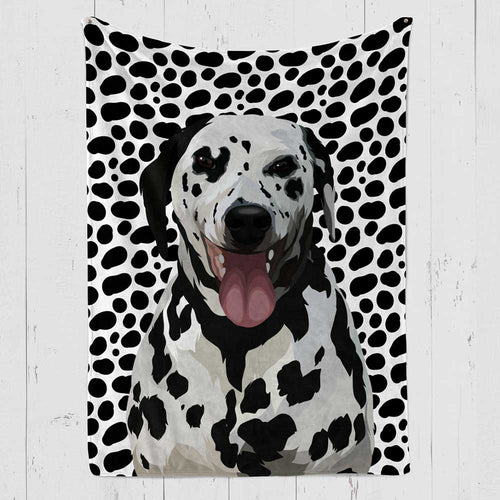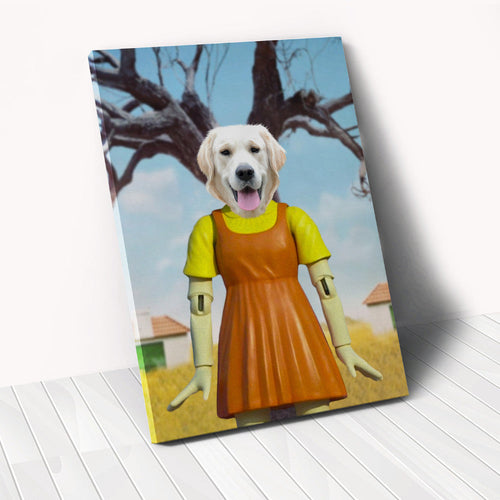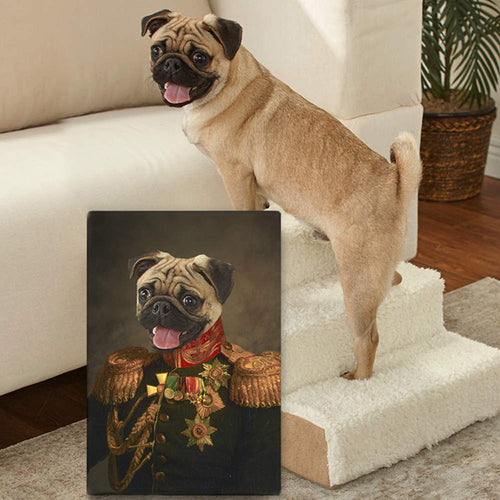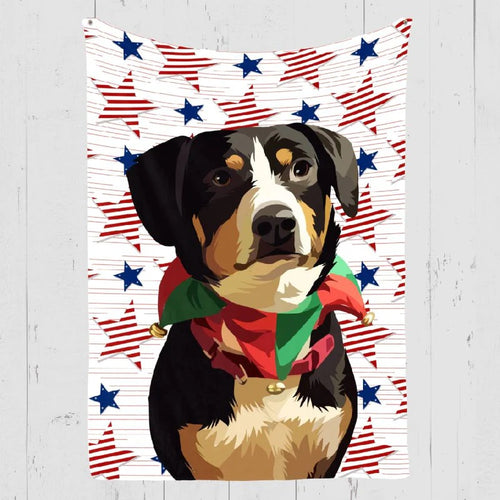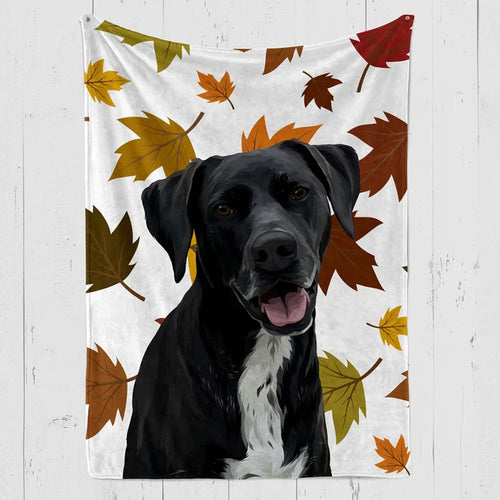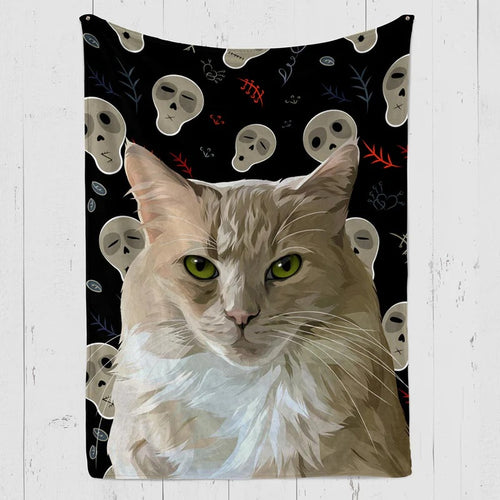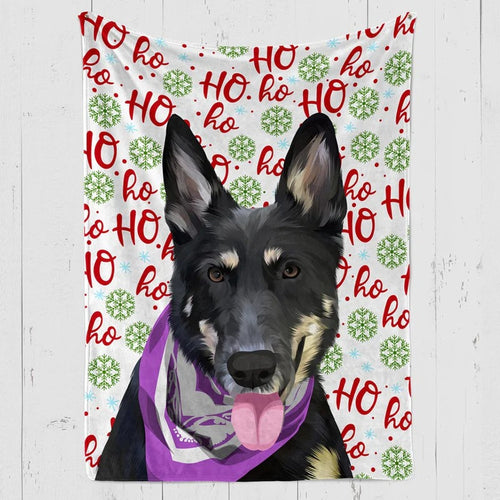
Dogs are a fascinating creature that has become a part of our life. This loyal companion of ours has captivated us with their array of behaviors. They have made a special place in our hearts through their innumerable qualities, like cognitive skills to adorable activities. It turns out that even during sleep, our furry friends have the ability to surprise us with their intriguing behaviors.
If you are a dog owner, you have likely experienced a moment where your dog howls during the night. You woke up, concerned that something was bothering them or they had noticed a raccoon or strange movements, only to find your dog howling while asleep. This behavior has captured the interest of innumerable dog owners. While you observe your beloved companion deeply asleep, you may notice some sounds coming from their dreams. This frequently leads dog owners to ponder why dogs howl during their slumber.
Join us on our journey as we try to discover the mysteries and throw some light on the possible reasons behind dogs howling in their sleep.
Understanding Dog Behavior During Sleep
Believe it or not, dogs, much like humans, go through different sleep phases, and they also dream just like us. Their sleep is divided mainly into Slow-wave sleep (SWS) and Rapid Eye Movement (REM) sleep.
In the Slow-wave sleep (SWS) phase, dogs lie still. Their eyes remain closed, their muscles relaxed, and they might even snore. This is the deepest stage of their sleep cycle and is very important for their mental and physical well-being. Growth hormones are released in this phase which helps in tissue and bone repair. During this phase, brain waves are slow and rhythmic, making it difficult to wake them up. It is in the best interest of your dog that you don’t disturb them in this phase
If you see your dog’s eye moving rapidly under the eyelids, twitching, or moving their legs in their sleep, they are in the Rapid Eye Movement (REM) stage of sleep, also known as the dreaming phase. This is an important part of their sleep cycle, boosting their mental health. In this phase, they process emotions and memories and learn new things. Brain waves are fast and irregular in this phase, and they may engage in vocalization like whines, barks, and other noises. This is what is commonly referred to as howling in the sleep. Some dogs are known to even engage in sleepwalking. The REM phase of dogs is more prominent in puppies and decreases with age. If the activities in this REM phase don’t become extremely disturbing for you or your neighbors, it is best to leave them undisturbed.
Key Reasons Why Dogs Howl in Their Sleep?
There are a few factors that can trigger howling or whining sounds in dogs in the REM stage of sleep. Some of those might be:
1. Dreams:
The most common reason for your dog to howl in sleep will be dreams. Most dogs consolidate their memories and process their daily activities, be it as simple as chasing a mouse or some activities you did with him during the REM stage of sleep. This is especially prevalent among young dogs. They reenact all the activities and learnings in the dream, and in the process, they may make noises or even howl or bark.
2. Instinctual and ancestral factors:
Dogs are descendants of wolves, so they possess some of the wolf traits in their genes. Wolves howl to communicate over long distances. And they may be exhibiting instinctual nature to howl. However, they don’t stay in packs anymore, exhibiting pack behavior even in their unconscious state of mind.
3. Communication and social factors:
As we discussed before, dogs still possess some wolf instincts and this might be triggering the innate pack behavior. Chances are that your dog is communicating with another dog at a distance, conveying some message to their kind, or establishing its presence by howling in their sleep. Even the social interaction your dog has throughout the day can come back to them in dreams, which in turn can trigger howling in the state of slumber.
4. Sensory triggers:
There might be a fire truck or ambulance passing by at a distance, or some dogs howling, or any other strange sound that we might not notice, but your pooch can hear them over a long distance. Such external sounds or stimuli during sleep can influence dogs' dreams, potentially causing them to howl.
5. Anxiety issues:
Anxiety can make your dog howl in their sleep. It is a kind of coping mechanism for them. Several things, from a change in routine, loud noises, and medical conditions to separation, can trigger anxiety in dogs.
If you observe that the dog howls when it is sleeping away from its owner, then the dog might be suffering from separation anxiety. Likewise, any change in routine can make dogs anxious and trigger stress. To overcome this anxiety, they may resort to howling in their sleep.
6. Health and discomfort factors:
If your dog experiences some kind of pain or discomfort or has any underlying medical conditions, then he might exhibit howling behavior in sleep.
If your dog has some kind of medical condition like heart disease, respiratory problems, or seizures, then they are more likely to howl in their sleep. A common issue among older dogs is arthritis, which can be a source of pain. Dogs may howl in their sleep to express this discomfort. You should also look out for dental and injury-related issues.
Does Your Dog Howl Only While Sleeping?
If you find your dog occasionally howling in the sleep, then it is absolutely harmless, and you have nothing to worry about. Most likely, your dog is having a dream, and this dreaming phase is usually more prominent in young dogs. This goes down as the age increases. However, if you notice any sudden change in their sleeping behavior or if you notice any spike in their vocalization in the dream, then it would be a wise decision to pay some attention to the dog and try to understand the reason behind it.
What is to be Done if Your Dogs Howl in Their Sleep?

Just like we humans feel confused and disoriented if we are suddenly nudged out of our sleep, our furry friends feel the same. Moreover, a proper uninterrupted sleep cycle is important for your dog’s mental and physical well-being. So, it will be the best decision if you do nothing and put up with the occasional barks and howls.
Even if you think your dog is going through some nightmares, it will be good if you let him deal with it by themselves. If the howling is becoming unbearable for you, then try to keep your dog in a separate zone and sensitize them to ambient noises. Waking them up or interrupting their sleep is never a good choice, and it may increase their stress further.
However, If your dog's sleep howling becomes worrisome or excessive for you and your neighbors and you feel intervention is necessary, then consider taking the following steps:
1. Observe and understand:
Pay attention to your dog and try to observe if there is a pattern or what is triggering their sleep howling.
2. Create a comfortable sleep environment:
To minimize stress arising from bedding issues, or temperature-related problems, ensure a comfortable sleeping environment for your dog. Also, make sure that your dog feels secure in that position. If needed, provide kennel training so as to make them feel cocooned in a den, just like they would sleep in the wild.
3. Consult a veterinarian:
If you suspect your dog is having some underlying health issues or if the howling persists and causes distress, seeking professional help will be the best choice. A veterinarian can provide valuable insights and guidance.
What are the Dog Breeds that Howl the Most?
Not all dog breeds howl. Certain dog breeds have a greater tendency to howl due to their genetic inclination. Even a breed that doesn't typically howl can join in if they are in the company of such a breed. If you intend to have these howling breeds, be ready to deal with some noise. Additionally, these vocal members of your household may even continue this howling behavior while they are asleep. Some of the popularly known howling breeds are:
- Siberian Husky
- Alaskan Malamute
- German Shepherd
- Anatolian Shepherd
- Basset Hound
- Bluetick Coonhound
- Beagles
Takeaway
So, next time you see your dog howling in their sleep, remember it is a natural phenomenon, and most likely, he is having a dream. Do try to observe and interpret what your dog is dreaming about; we bet it will leave you smiling most of the time. Such behavior can also be influenced by a variety of factors, such as instinct, communication, sensory triggers, and health. While occasional sleep howling is typically normal, excessive or distressing howling should be taken seriously. Understanding the reasons behind this behavior and taking appropriate steps, such as consulting a veterinarian, can ensure your furry friend's well-being and help them achieve restful sleep.
Remember, a loving and patient approach can go a long way in nurturing your dog's happiness and serenity while awake and during their fascinating dreams.
Frequently Asked Questions
Is there anything I can do to prevent my dog from howling during sleep?
Dogs generally howl during sleep as a result of anxiety or nightmares. Dreaming poses no danger to dogs, so it's best not to disturb them when they're in the midst of a dream. However, dogs do not possess the same capacity for imagination as humans do. Their dreams revolve around their daily experiences. Therefore, if your dogs frequently have distressing or unpleasant dreams, it may be beneficial to alter their environment.
When should I seek professional assistance concerning my dog's howling during sleep?
It is typical for dogs to howl during sleep. If your dog howls during sleep but remains quiet throughout the day, you can disregard it. However, if this behavior escalates over time or if you suspect it is due to health problems or anxiety, it is important to seek guidance from a professional to identify the underlying cause and address it properly.
Is it possible to train my dog to stop or decrease howling?
In many instances, this howling behavior can be addressed or trained. If you consistently respond to your dog's howling, it will associate this behavior with receiving attention. It's important not to punish your dog for howling. Instead, identify the trigger, avoid rewarding howling, maintain consistency, and exercise patience. Moreover, you can reward them for being quiet.
What is the reason behind street dogs howling at night?
Stray dogs howl, cry, and bark during the night as a means of marking and safeguarding their territories from other dogs. It serves as a form of defense and also demonstrates their dominance in the area.
Reference Links:
- https://dogdiscoveries.com/uncategorized/understanding-dog-howling-during-sleep
- https://howtododogtraining.com/dog-howl-in-sleep/
Recommended Articles :
- Why Does Your Dog Prefer To Sleep On Your Pillow?
- Why Does My Dog Like To Sleep Under The Covers?
- Why Does My Dog Sleep On Me?
- Why Do Dogs Sleep With Their Bum Facing You?
Latest Review on Woof Blankets
To have such a masterpiece by my side every day is a gift for me and my memories with Rex. Thank you WoofBlankets for such an opportunity to recreate his image on a blanket.Lara o’ Miguel US, California
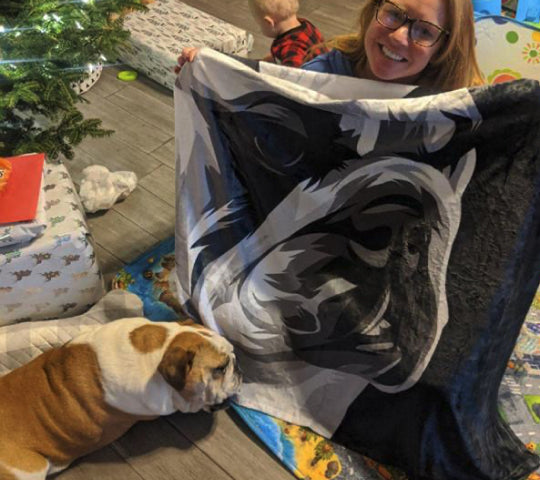
COLLECTION WORTH EVERY PENNY
BEST SELLERS
-
Woofy Single Color Custom Pet Blanket
![Woofy Single Custom Pet Blanket – Woof Blanket]()
- -41%
BlanketsSHOP NOW- Regular price
- from $64.95
- Sale price
- from $64.95
- Regular price
-
$109.95 - Unit price
- per
Sold out -
Exclusive Christmas Custom Pet Blanket
![Exclusive Custom Pet Blanket]()
- -39%
BlanketsSHOP NOW- Regular price
- from $69.95
- Sale price
- from $69.95
- Regular price
-
$114.95 - Unit price
- per
Sold out -
Christmas Custom Pet Blanket
![Christmas Custom Pet Blanket - Custom Dog Blankets]()
- -40%
BlanketsSHOP NOW- Regular price
- from $69.95
- Sale price
- from $69.95
- Regular price
-
$115.95 - Unit price
- per
Sold out -
Watercolor Pet Portraits
![]() SHOP NOW
SHOP NOW- Regular price
- from $59.95
- Sale price
- from $59.95
- Regular price
-
- Unit price
- per
Sold out -
Woofy Christmas Custom Dog Blanket
![Woofy Christmas Custom Dog Blanket]()
- -39%
BlanketsSHOP NOW- Regular price
- from $69.95
- Sale price
- from $69.95
- Regular price
-
$114.95 - Unit price
- per
Sold out -
Modern Pet Owner Portrait
![]()
- -32%
CanvasSHOP NOW- Regular price
- from $84.95
- Sale price
- from $84.95
- Regular price
-
$124.95 - Unit price
- per
Sold out -
Woof Splash Custom Pet Blanket
![Woof Splash Custom Pet Blanket]()
- -39%
BlanketsSHOP NOW- Regular price
- from $69.95
- Sale price
- from $69.95
- Regular price
-
$114.95 - Unit price
- per
Sold out -
The Admiral - Custom Pet Portrait
![The Admiral - Custom Pet Portrait Online]()
- NEW
- -25%
CanvasSHOP NOW- Regular price
- from $59.95
- Sale price
- from $59.95
- Regular price
-
$79.95 - Unit price
- per
Sold out -
Wings of Loyalty - Custom Pet Portrait
![]()
- NEW
CanvasSHOP NOW- Regular price
- from $59.95
- Sale price
- from $59.95
- Regular price
-
- Unit price
- per
Sold out -
Pet Memorial Custom Photo Collage Blanket
![Personalized pet memorial quilt with photos]()
- -41%
BlanketsSHOP NOW- Regular price
- from $64.95
- Sale price
- from $64.95
- Regular price
-
$109.95 - Unit price
- per
Sold out -
Celestial Paws - Custom Pet Portrait
![]() CanvasSHOP NOW
CanvasSHOP NOW- Regular price
- from $59.95
- Sale price
- from $59.95
- Regular price
-
- Unit price
- per
Sold out -
The Loyal Soul - Custom Pet Portrait
![]()
- NEW
SHOP NOW- Regular price
- from $59.95
- Sale price
- from $59.95
- Regular price
-
- Unit price
- per
Sold out -
Cartoonized Pet Portraits (New)
![Cartoonized Pet Custom Portraits Online]()
- -36%
SHOP NOW- Regular price
- from $59.95
- Sale price
- from $59.95
- Regular price
-
$93.95 - Unit price
- per
Sold out -
The French Sailor - Custom Pet Portrait
![]()
- -25%
CanvasSHOP NOW- Regular price
- from $59.95
- Sale price
- from $59.95
- Regular price
-
$79.95 - Unit price
- per
Sold out -
The Policeman - Custom Pet Portrait
![]()
- NEW
- -25%
CanvasSHOP NOW- Regular price
- from $59.95
- Sale price
- from $59.95
- Regular price
-
$79.95 - Unit price
- per
Sold out -
The General - Custom Pet Portrait
![]()
- NEW
- -25%
CanvasSHOP NOW- Regular price
- from $59.95
- Sale price
- from $59.95
- Regular price
-
$79.95 - Unit price
- per
Sold out -
Woof Love Custom Pet Blanket
![Woof Love Custom Pet Blanket]()
- -39%
BlanketsSHOP NOW- Regular price
- from $69.95
- Sale price
- from $69.95
- Regular price
-
$114.95 - Unit price
- per
Sold out -
Summer Time Custom Pet Blanket
![Summer Time Custom Pet Blanket]()
- -39%
BlanketsSHOP NOW- Regular price
- from $69.95
- Sale price
- from $69.95
- Regular price
-
$114.95 - Unit price
- per
Sold out -
The Ambassador - Custom Pet Portrait
![The Ambassador - Custom Pet Portrait Online]()
- NEW
- -25%
CanvasSHOP NOW- Regular price
- from $59.95
- Sale price
- from $59.95
- Regular price
-
$79.95 - Unit price
- per
Sold out -
Fall In Love Custom Pet Blanket
![Fall In Love Custom Dog Blanket]()
- NEW
- -39%
BlanketsSHOP NOW- Regular price
- from $69.95
- Sale price
- from $69.95
- Regular price
-
$114.95 - Unit price
- per
Sold out -
The Classy Lady - Custom Pet Portrait
![The Classy Lady]()
- NEW
- -25%
CanvasSHOP NOW- Regular price
- from $59.95
- Sale price
- from $59.95
- Regular price
-
$79.95 - Unit price
- per
Sold out -
The Duke - Custom Pet Portrait
![The Duke - Custom Pet Portrait]()
- NEW
- -25%
CanvasSHOP NOW- Regular price
- from $59.95
- Sale price
- from $59.95
- Regular price
-
$79.95 - Unit price
- per
Sold out -
Dog In Suit- Custom Pet Portrait
![Dash Dog In Suit- Custom Pet Portrait Online]()
- NEW
- -25%
CanvasSHOP NOW- Regular price
- from $59.95
- Sale price
- from $59.95
- Regular price
-
$79.95 - Unit price
- per
Sold out -
The Princess - Custom Pet Portrait
![]()
- NEW
- -25%
CanvasSHOP NOW- Regular price
- from $59.95
- Sale price
- from $59.95
- Regular price
-
$79.95 - Unit price
- per
Sold out -
Modern Pet Portrait with One Mug
![Modern Pet Portrait with One Mug]()
- -25%
Print MaterialSHOP NOW- Regular price
- from $99.95
- Sale price
- from $99.95
- Regular price
-
$133.95 - Unit price
- per
Sold out -
The Aristocrat - Custom Pet Portrait
![The Aristocrat - Custom Pet Portrait At Best Price]()
- NEW
- -25%
CanvasSHOP NOW- Regular price
- from $59.95
- Sale price
- from $59.95
- Regular price
-
$79.95 - Unit price
- per
Sold out -
Single Color Custom Blanket with 1 Mug
![Single Color Custom Blanket with 1 Mug]() BlanketsSHOP NOW
BlanketsSHOP NOW- Regular price
- from $99.95
- Sale price
- from $99.95
- Regular price
-
- Unit price
- per
Sold out -
Single Color Custom Blanket with 2 Pillows
![Single Color Custom Pet Blanket with 2 Pillows]()
- -21%
BlanketsSHOP NOW- Regular price
- from $99.95
- Sale price
- from $99.95
- Regular price
-
$125.95 - Unit price
- per
Sold out -
The Dog in Suit Custom Pet Mug
![]()
- -20%
MugsSHOP NOW- Regular price
- $39.95
- Sale price
- $39.95
- Regular price
-
$49.95 - Unit price
- per
Sold out -
Angel Custom Pet Mug
![]()
- -20%
MugsSHOP NOW- Regular price
- $39.95
- Sale price
- $39.95
- Regular price
-
$49.95 - Unit price
- per
Sold out -
This Human Belongs To - Custom Pet Mug
![]()
- NEW
- -20%
MugsSHOP NOW- Regular price
- $39.95
- Sale price
- $39.95
- Regular price
-
$49.95 - Unit price
- per
Sold out -
It's Not Dog Hair Custom Pet Mug
![]()
- NEW
- -20%
MugsSHOP NOW- Regular price
- $39.95
- Sale price
- $39.95
- Regular price
-
$49.95 - Unit price
- per
Sold out -
My Dog Is My Valentine Custom Pet Mug
![]()
- NEW
- -20%
MugsSHOP NOW- Regular price
- $39.95
- Sale price
- $39.95
- Regular price
-
$49.95 - Unit price
- per
Sold out -
3 Photos With Message Custom Pet Mug
![]()
- NEW
- -20%
MugsSHOP NOW- Regular price
- $39.95
- Sale price
- $39.95
- Regular price
-
$49.95 - Unit price
- per
Sold out -
My Valentine Has Four Legs- Personalized Mugs
![]()
- NEW
- -20%
MugsSHOP NOW- Regular price
- $39.95
- Sale price
- $39.95
- Regular price
-
$49.95 - Unit price
- per
Sold out -
Dog Mamma Custom Pet Coffee Mug
![]()
- -20%
MugsSHOP NOW- Regular price
- $39.95
- Sale price
- $39.95
- Regular price
-
$49.95 - Unit price
- per
Sold out -
Uncle Sam - Custom Pet Portrait
![]()
- NEW
- -25%
CanvasSHOP NOW- Regular price
- from $59.95
- Sale price
- from $59.95
- Regular price
-
$79.95 - Unit price
- per
Sold out -
The Revolutionary Emperor - Custom Pet Portrait
![]()
- NEW
- -25%
CanvasSHOP NOW- Regular price
- from $59.95
- Sale price
- from $59.95
- Regular price
-
$79.95 - Unit price
- per
Sold out -
The Princess Paws - Custom Pet Portrait
![]()
- -25%
CanvasSHOP NOW- Regular price
- from $59.95
- Sale price
- from $59.95
- Regular price
-
$79.95 - Unit price
- per
Sold out -
The Dark Crusader Knight - Custom Pet Portrait
![]()
- -25%
CanvasSHOP NOW- Regular price
- from $59.95
- Sale price
- from $59.95
- Regular price
-
$79.95 - Unit price
- per
Sold out

